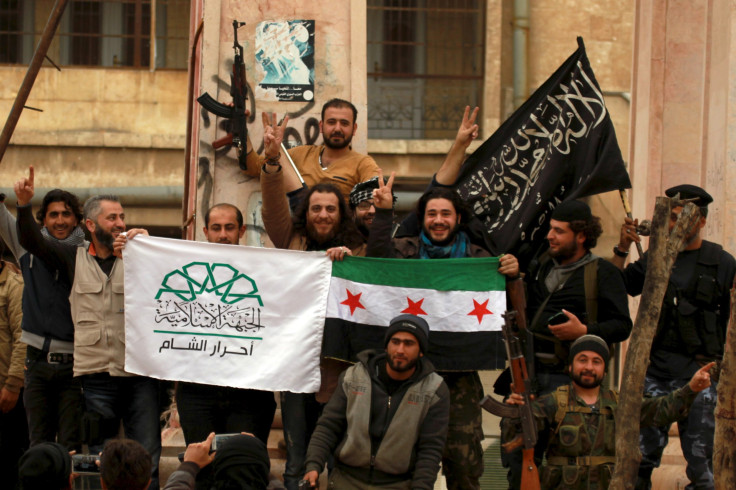Syrian Rebel Group Jaysh al Fatah Captures Ariha, Takes All Of Idlib Province From Regime

The Islamist rebel group Jaysh al-Fatah captured the Syrian city of Ariha on Thursday night, giving it almost complete control over the important northern province of Idlib, aside from a few small villages. Ariha was the last city there held by President Bashar Assad’s military, and its capture is a major victory for a rebel group, which is allied with the Syrian branch of al Qaeda.
Jaysh al-Fatah, meaning the Army of Conquest in Arabic, is a joint force created two months ago by Jabhat al-Nusra, the local al Qaeda branch, and Ahrar al-Sham, another Islamist rebel group, as well as smaller rebel factions. The new force has fast become one of the most successful military actors in the Syrian war after defeating the Assad regime in key battles this month.
The capture of Ariha in Idlib is just one of many Jaysh al-Fatah victories since its formation, but it stands out among the battles because the city fell in just a few hours, underscoring the rebel group's military strength.
Jabhat al-Nusra is the leading player in Jaysh al-Fatah. It posted a map of the group’s gains in Idlib on its official Twitter feed Thursday. Fighters said on social media that the battle took weeks to plan, but only a few hours to execute.
In April, Jaysh al-Fatah gained recognition both inside and outside Syria when it captured the city of Idlib from Assad's forces. That battle took several days to win. After weeks of fighting and constant bombardment by Assad’s air force, the rebels pushed the military out of the city and claimed control. It was the first major victory for the opposition since it lost the city of Homs to the military last year.
The U.S. and its Western allies have not officially recognized Jaysh al-Fatah. Some of the smaller rebel factions now associated with the group were once the main Syrian recipients of U.S. weapons; the White House now fears that the weapons it provided to what were then considered moderate rebel groups may now have ended up in the hands of extremists.
What's more, while al Qaeda and the Islamic State group or ISIS (both Sunni Muslim extremists) are enemies, there may be instances where local cooperation between the two may result in American weapons getting into the hands of ISIS.
According to Syrian fighters, Jabhat al-Nusra is working alongside ISIS in the Yarmouk refugee camp outside Damascus, to defeat Assad’s military and local Palestinian factions. Some reports have hinted that Nusra fighters may have even pledged allegiance to the Islamic State group in Yarmouk.
If the collaboration between Nusra and ISIS in Yarmouk becomes a model followed in other parts of Syria, the opposition to Assad will consist almost exclusively of ultra-radical Sunni Islamists. The U.S. will be left without any credible faction to back in the fight against the regime, and its top enemy in the region, the Islamic State group, will be strengthened.
© Copyright IBTimes 2025. All rights reserved.





















